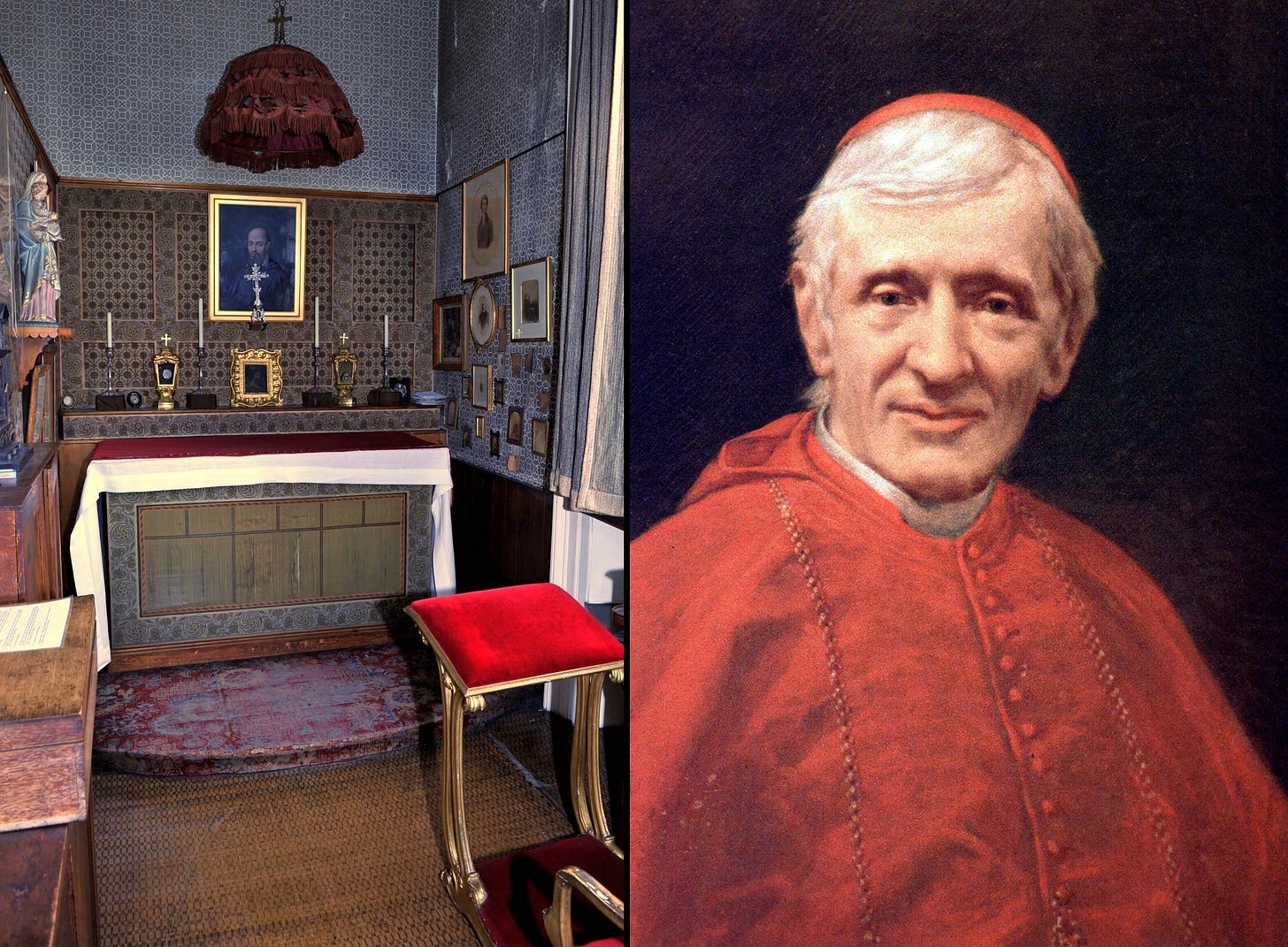St. John Henry Newman: Father of Vatican II—or Godfather of the Traditionalist Movement? (Part 1)

Because the postconciliar “progressives” in the Church are accustomed to craft and lying, which is how they have obtained the mastery of important positions (for the devil is lavish with his own), Newman has been selectively misquoted and misrepresented as a friend of their cause, which has led to his falling under a cloud of suspicion in the minds of certain conservative and traditional Catholics who do not know his work well. He has even been accused of being a modernist, although in fact one finds him expressly refuting the modernists, in many cases long before their ideas became fashionable and widespread.
If I might paraphrase our saint himself, to be deep in Newman is to cease to be a modernist. Today and in the next two posts, I will demonstrate that this is no exaggeration.
Father of Vatican II?
Let’s begin with the tendentious recruitment. In a vast number of books and articles, John Henry Newman is co-opted as “the theologian of the Second Vatican Council” or even as an honorary “Father of the Council.” Usually this is said as if it’s self-evident and requires no argument.
The claim has a superficial plausibility. First, Newman strongly emphasized the rights of conscience—obviously a pivotal theme in Dignitatis Humanae. Second, he placed unusual emphasis on the role of the laity:
I want a laity…who know their religion, who enter into it, who know just where they stand, who know what they hold, and what they do not, who know their creed so well that they can give an account of it, who know so much of history that they can defend it. I want an intelligent, well-instructed laity;…I wish you to enlarge your knowledge, to cultivate your reason, to get an insight into the relation of truth to truth, to learn to view things as they are, to understand how faith and reason stand to each other, what are the bases and principles of Catholicism, and where lie the main absurdities of the Protestant theory. I have no apprehension you will be the worse Catholics for familiarity with these subjects, provided you cherish a vivid sense of God above, and keep in mind that you have souls to be judged and to be saved. In all times the laity have been the measure of the Catholic spirit…1
Third, he brought into prominence the importance of the episcopacy alongside the papacy, which was a theme of Lumen Gentium and Christus Dominus. Fourth, his deep exploration of divine revelation and the process by which doctrine develops over time left an imprint on Dei Verbum and other documents. Other such parallels can be raised.
The difficulty, to my mind, is that the things Newman actually said on these topics are often tellingly different in focus or emphasis or context from what Vatican II said—and totally different from what the implementers and cheerleaders of Vatican II said and did afterwards.
It is ironic that the Cardinal of the Biglietto Speech is linked with a Council that, whatever its good intentions may have been, ushered in a period that vindicated every one of his dire prognostications about the loss of Christian faith and culture through secularization. It is ironic that he is mentioned in the same sentence with proponents of reforming trends in the modern Church, when—at least on matters concerning fundamental theology, Christian morality, and sacred liturgy—he argued strenuously and consistently throughout his career against rationalism, emotionalism, liberalism, and liturgical “tinkeritis,” that is, the belief that we can build a better worship if only we tinker enough with what we have inherited.
Keep reading with a 7-day free trial
Subscribe to Tradition and Sanity to keep reading this post and get 7 days of free access to the full post archives.


